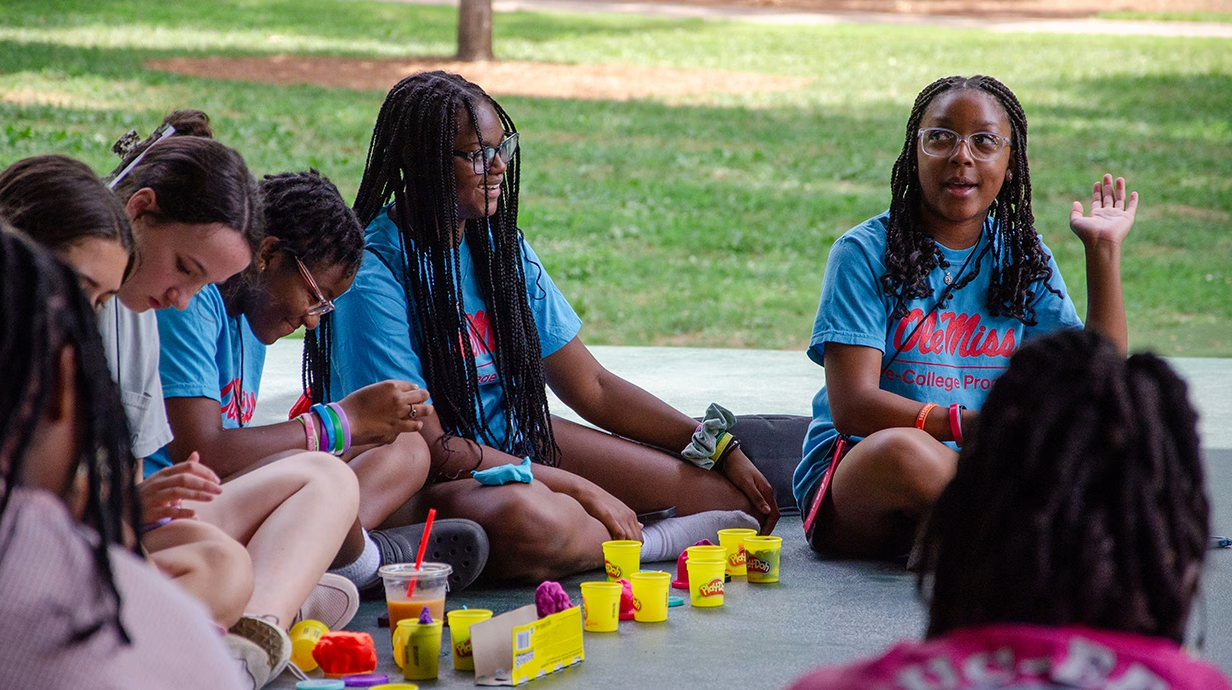OXFORD, Miss. – University of Mississippi researchers are using a $2 million grant from the Department of Justice to promote safety, belonging and academic success in rural Mississippi classrooms.
The Connections Program brings together experts from philosophy, education, social work, psychology and criminal justice to foster safer and more supportive school environments.
“One of the things that makes this program really distinctive is that it incorporates ethics into the curriculum,” said Deborah Mower, director of The Center for Practical Ethics. “There are no other programs that do that, and the incorporation of ethics and the study of philosophy is not something done in the United States educational system.
“That’s to the detriment of students because they don’t have the opportunity to really grapple with some deep, personal questions and complex situations in ways that could help them make better decisions.”
The Connections Program will involve teachers, counselors, parents and school resource officers working to implement a curriculum that encourages students to think critically about their actions and decisions. By developing these skills, the researchers aim to reduce the number of chronically absent students and safety concerns in schools.
The Connections Program will include:
- Covington County School District
- Hazelhurst Public School District
- Hinds County School District
- Laurel Public School District
- McComb Public School District
- Moss Point School District
- North Pike County School District,
- South Pike County School District
- Vicksburg-Warren County School District
- Yazoo County School District.
Through the help of multiple graduate assistants, the Center for Evidence-Based Policing and Reform and the National Center for School-University Partnership, the researchers will provide materials that every person in a student’s community can use.
This will equip students with the tools to address complex problems early in life, said Yolanda Acey, executive director of the Center for Urban Family Health and Wholeness, a nonprofit that supports grassroots community-focused programs in Mississippi. Acey, a former Mississippi schoolteacher, is also a co-investigator of the grant.
“It started from working in public schools in Mississippi, seeing that there was a need for students to really think about their actions,” Acey said. “One of the things that we are missing is that curriculum – something that teachers can really use to have their students think about the decisions that they’re making and really make that understanding practical.”
Throughout the grant, Grace Rivera, Ole Miss assistant professor of psychology, and Saijun Zhang, associate professor of social work, will gather data about the program to see which methods work.
“We would like to identify the best approaches to develop and advance our evidence-based program model,” Zhang said. “So, for each component of the program – (those for) students, teachers, staff, law enforcement, community members and parents – we’ll have an evaluation plan that is accompanying it.”
Another goal is to increase students’ feelings of belonging and authenticity of each school district, Rivera said. By tracking the program’s success, the researchers hope to develop a model that other schools can use.
Increases in feelings of belonging, authenticity and well-being are correlated with better academic success, Mower said.
“We are hoping to provide students with positive skills to better manage disputes and disagreements in ways that help them in both their academic work and personal lives,” she said. “And if we can show the effectiveness of this program and address those very specific needs, then we have a practical model that other states will also want to use.
“That’s what we’re really most excited about – developing this model that could be used in any state, in any part of the country, in any part of the world where youth are facing these kinds of conditions of poverty, violence, lack of opportunity and lack of engagement.”
This project is supported by Grant No. 15PBJA-24-04352-STOP awarded by the Bureau of Justice Assistance, Office of Justice Programs, U.S. Department of Justice.
This article was orginally published at olemiss.edu


